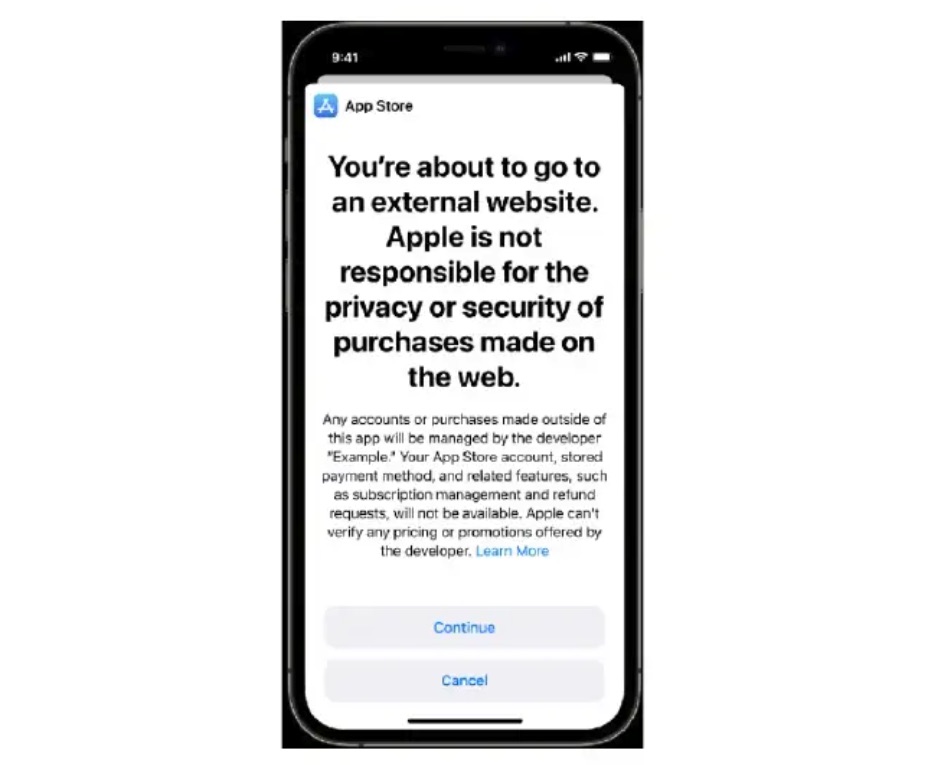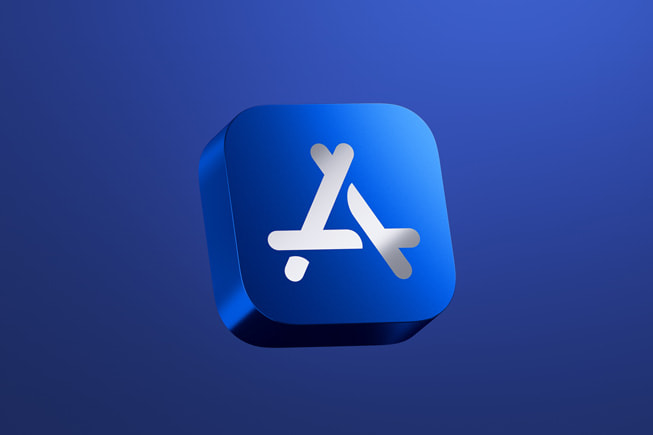Apple is making changes to its U.S. iOS App Store policies. Developers will now be able to direct customers to a non-App Store purchasing option for digital goods. Apple is now allowing devs to feature a single link to a developer website that leads to an in-app purchase alternative. But don’t worry about Apple being able to line its pockets with cash, the Cupertino firm still plans to collect a 12 to 27% cut of the action when content is purchased in that manner.
iPhone and iPad users in the U.S. storefront will soon see a link to their website where subscriptions and other content can be purchased outside of the App Store in-app purchase system, likely with a discounted price.
Developers will need to apply for a StoreKit External Purchase Link Entitlement, as Apple has outlined in both updated App Store Review Guidelines and a statement of compliance submitted to the Northern California U.S. District Court. From Apple’s modified App Store rules:
Developers may apply for an entitlement to provide a link in their app to a website the developer owns or maintains responsibility for in order to purchase such items. Learn more about the entitlement. In accordance with the entitlement agreement, the link may inform users about where and how to purchase those in-app purchase items, and the fact that such items may be available for a comparatively lower price. The entitlement is limited to use only in the iOS or iPadOS App Store on the United States storefront. In all other storefronts, apps and their metadata may not include buttons, external links, or other calls to action that direct customers to purchasing mechanisms other than in-app purchase.
If your app engages in misleading marketing practices, scams, or fraud in relation to the entitlement, your app will be removed from the App Store and you may be removed from the Apple Developer Program.
Apple says developers will need to adhere several requirements to maintain the privacy and security of the App Store ecosystem, and notably, Apple will collect a commission on purchases made using these Entitlement Links.
Apple will not get to wet its beak to the full 30% it usually receives on in-app content, instead, it will collect a 27% fee on user purchases or year-one subscriptions made through the link. On the second year of a subscription, the commission fee drops to 12%, compared to its usual 15% piece of the action. Apps that participate in the App Store Small Business Program will be charged a 12% commission rate.
The commission will apply to transactions for digital goods and services that take place on a developer’s website within seven days after a user taps through an External Purchase Link to an external website.
The Link Entitlement process and the App Store changes are allowed only in the U.S. App Store. Apps for all other storefronts are not able to include buttons, external links, or calls to action that direct customers to alternative purchasing options.
Several key points about Entitlement Links are listed below (via MacRumors).
- All links to outside purchasing methods must use the Entitlement Link system, and developers must apply and get Apple’s approval.
- Developers are permitted to have a single plain link on one screen of an app. The link can be at a sign-in screen, in user settings, or elsewhere, but it can only be in one place. The single location may not be an interstitial, modal, or pop-up.
- The link can mention the specific price of content on a website, or that content is discounted on the website from the App Store price. Comparisons are allowed.
- Links cannot be placed directly on an in-app purchase screen or in the in-app purchase flow.
- Developers need to certify that the third-party payment service provider they are using for out-of-app purchasing meets industry standards for payment processors, and that they will offer users processes for managing subscriptions, requesting refunds, and disputing unauthorized transactions.
- Apps that participate in Apple’s Video Partner Program or News Partner Program are not eligible for Link Entitlement.
- Apps that use the StoreKit External Purchase Link must continue to offer in-app purchases as an option.
- App Store pages are not able to include information about purchasing on a website or a link to a website.
- Digital purchases that are sold on an app’s website through the Entitlement Link must be available for use in that app.
- The StoreKit External Purchase Link cannot discourage users from making in-app purchases or mimic an in-app purchase.
- Links must open a new window in the default browser of the device, and are not able to open a web view.
- No redirecting, intermediate links, or URL tracking parameters are allowed.
- Developers are required to provide a periodic accounting of qualifying out-of-app purchases, and Apple has a right to audit developers’ accounting to ensure compliance with their commission obligations and to charge interest and offset payments.
Apple will throw up an in-app warning to customers on their device’s screen, to let them know that they are leaving the App Store ecosystem to make a purchase on an external website not under Apple’s control and that App Store protections will not be available.

Apple’s changes stem from Apple’s long-running legal battle with Epic Games. In September 2021, Judge Yvonne Gonzalez Rogers ruled that Apple was not a monopoly. However, Apple would be forced to change its “anti-steering” rules that prohibit developers from directly communicating with customers about alternate payment options. While that order has been paused during the appeals process, that all ended yesterday with the Supreme Court declining to hear the case.
Epic Games CEO Tim Sweeney criticized the changes Apple is making to the App Store and said that Epic plans to contest Apple’s “bad-faith compliance plan” in District Court.
A quick summary of glaring problems we've found so far:
1) Apple has introduced an anticompetitive new 27% tax on web purchases. Apple has never done this before, and it kills price competition. Developers can't offer digital items more cheaply on the web after paying a… pic.twitter.com/YkHuapG7xa
— Tim Sweeney (@TimSweeneyEpic) January 16, 2024


